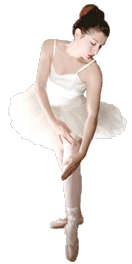The stroll is a dance of American origin, though now more popular in European 50s rock and 40s swing clubs. The dance is done to slow swing, rock, or rhythm and blues music and was greatly popularized by the 1957 hit, “The Stroll,” written by the Diamonds.
Actually, the stroll dates back long ago to couples lining up opposing each other, while the couple at the top dances through the line. Such dances were a component of many of the European dances done in the 18th and 19th century. One can often see examples of these types of dances in period films.
The stroll as conceived by American dancers is often credited to having first appeared on the 1950s show American Bandstand. However, evidence suggests some variant of the stroll existed prior to this time.

In general, couples line up opposing each other, while a single couple dances, struts or grapevines through the line. Each couple gets a chance to have all eyes upon them, so the dance is often a time to express individual characteristics. This is exactly the purpose of the stroll as done in the movie version of Grease. As well, many reference, George Lucas’ American Graffiti as a good example of the stroll.
Sometimes, people use the term stroll to refer to line dances such as the Electric Slide. These dances are usually all dancers moving in unison, as opposed to the formed line in which individuals can have a chance to promenade.
Most commonly, though, the stroll refers to the dance as conceived in the 1950s. For beginning dancers the stroll is one of the easiest dances to learn, since it is short, and mistakes are generally tolerated. The stroll also provides a nice break from the more demanding footwork required by faster music. Since one is primarily just standing, or moving from foot to foot and snapping or clapping, the only real movement of the dance is the strut down the middle of the standing dancers.
The stroll also provided a way for dancers in the fifties to perform a dance to slow music that did not require embracing each other. Thus it was likely popular for high school dances as it maintained decorum and kept couples from what school administrators might have deemed inappropriate behavior.
